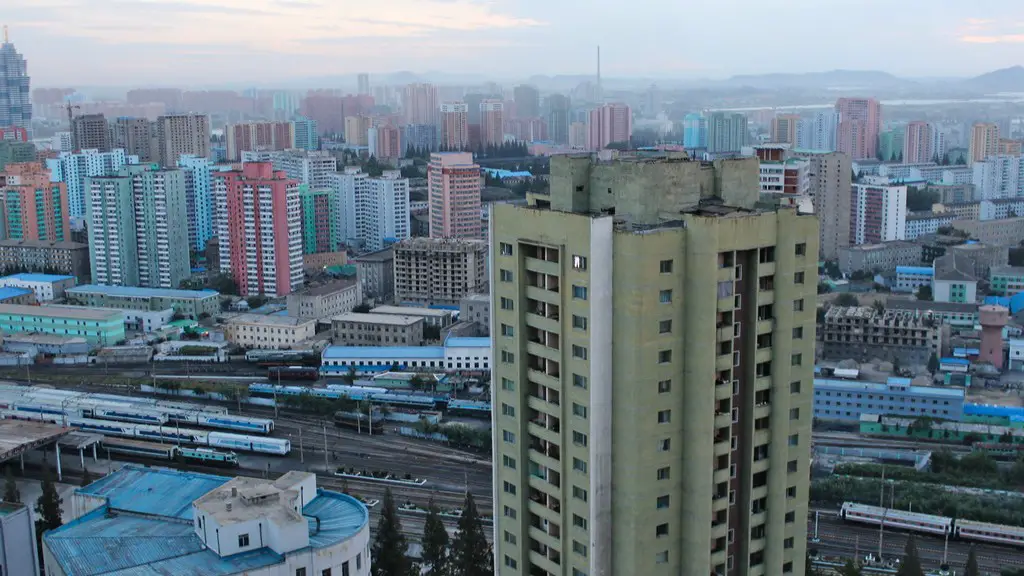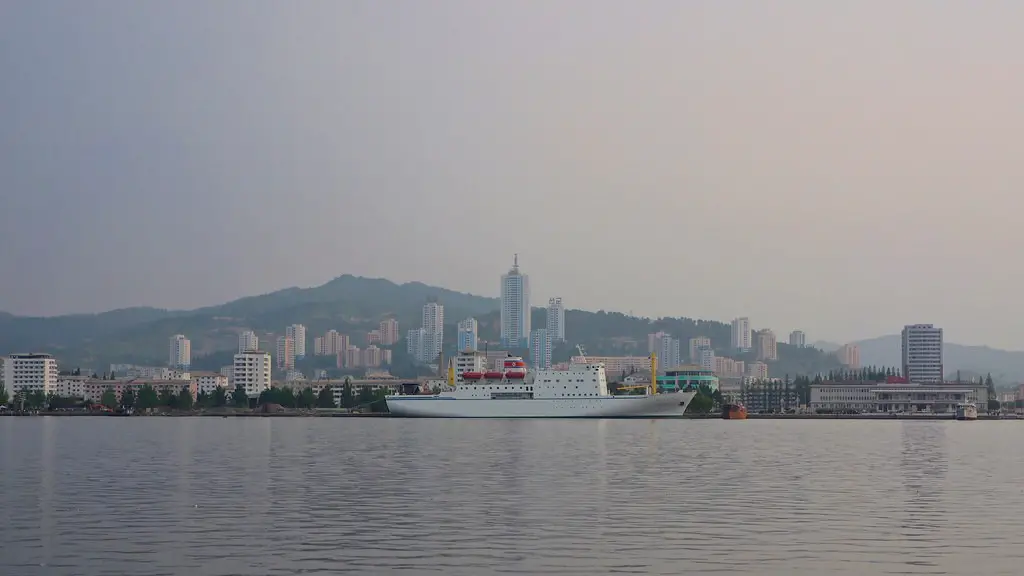Northern Korea’s Nuclear Capacity
If any country had the capability to nuke the Hawaiian islands, it would be North Korea. North Korea has become an increasingly powerful nuclear state in recent years, with an estimated 30-60 warheads according to military estimates. Numerous missiles have been successfully tested in 2016, and the regime has a strong proliferation track record. North Korea’s nuclear capabilities could potentially reach Hawaii, as the missiles they currently possess, like the Hwasong-12, have the range to hit Honolulu.
The US mainland, however, is still out of North Korea’s striking range, but it is believed that Hawaii and parts of Alaska are within their reach. North Korea has shown the capability and willingness to perform a launch in the region, as they launched a missile over the Japanese island of Hokkaido and into the Pacific Ocean in August of 2017. To add to the unpredictability of North Korea, they recently tested a longer range, submarine-launched ballistic missile, though it’s unsure as to whether it is operational yet.
The Probability of a Nuclear Strike
Despite the range capabilities of North Korean missiles, many experts believe that the probability of them actually launching a nuclear weapon at Hawaii is extremely low. Jane Harman, director of the Woodrow Wilson International Centre for Scholars, believes it is unlikely for North Korea to strike Hawaii, and that their missile launches are symbolic and more of a strategic move than anything else.
However, in July 2017, the Pentagon reported that if North Korea were to launch a nuclear weapon, they would have a minute or two at most to take action. They are taking all necessary safety precautions, however a direct strike on Hawaii is still unlikely as North Korea’s missile defence systems are not advanced enough to fire targeted warheads at specific locations. The scenarios in which North Korea would launch an offensive at Hawaii are unknown, but experts believe it is unlikely to happen.
Protective Measures
In the case of an actual launch, the US government has taken numerous steps to prepare the state of Hawaii and its people. In late December 2017, the US military announced that they are including sirens, underground shelters, and missile defense systems in Hawaii. On January 13th, 2018, the state of Hawaii began to take more measures to prepare for a possible attack, such as installing early warning sirens in various locations around major cities like Honolulu.
Additionally, the Hawaii Emergency Management Agency has urged state officials to start organizing drills and evacuation routes to ensure the safety of citizens in the case of an attack. This is all in addition to the nationwide action the US government has taken in response to North Korean nuclear threats.
Economic Impact
In the case of a nuclear attack, the US manufacturing sector could be significantly impacted, especially in the sense of security. Hawaii is home to many US military bases and enormous marine and air forces as it currently serves as a strategic outpost. Nuclear attacks on the US would not only mean a significant human cost, it would also likely lead to heightened military tensions between the US, China and its neighbors.
Hawaii’s infrastructure, environment and its economy will be significantly impacted in the case of a nuclear attack. The Caribbean islands, which are close to the US mainland and already suffer from a lack of resources, would be the most affected in terms of tourism, as the Caribbean is usually a destination for vacationers.
Political Incentives
Internationally, there has been some speculation as to what incentives North Korea could have for launching a nuclear weapon. Some experts feel that North Korea may be using their nuclear weapons program as political leverage to gain relief from sanctions, while others suggest that they are attempting to build further influence outside of the region.
In any case, it is almost certain that North Korea is attempting to gain political advantages in some way. It is imperative that the US and international community remain vigilant and keep a close eye on the situation, as North Korea’s motives for their military endeavors have proven to be quite unpredictable.
DISARMAMENT
In order to ensure the safety of the Hawaiian Islands, it is important for the US and the international community to push for the total disarmament of North Korea’s nuclear capabilities. As the international community puts pressure on Pyongyang, there is an internal struggle between the hardliners and moderates within the North Korean regime.
China is in a prime position to mediate between the United States and North Korea, as it is the primary trading partner of North Korea and has a significant influence in the region. China has already reached out to the North Korean leader, Kim Jong Un, and has offered assistance to the North Korean government in order to get it back to the bargaining table.
The United Nations has also been pushing for disarmament, as they have implemented strict sanctions and proposed a two-track process of diplomacy and pressure to de-escalate tensions and ultimately disarm North Korea. Additionally, the US has also proposed diplomatic talks which could result in the complete disarmament of North Korea and ultimately end the threat they pose to Hawaii and the entire world.
Military Pressure
It is possible that the US could use military force to get North Korea to disarm. While the US has a vast array of military capabilities and weapons at their disposal, the effectiveness of such an approach is highly uncertain. Additionally, the use of military force could very well cause a catastrophic conflict that would involve all countries in the region and could lead to a global nuclear armageddon.
Furthermore, the use of military force could actually strengthen the resolve of the North Korean leader, as he is likely to be more determined to keep his nuclear weapons program in place if he feels threatened militarily. It is important to note that anything short of deterring a missile launch with military force would likely not be enough to get North Korea to dismantle their nuclear capabilities.
International Sanctions
Despite the growing tensions between the US, North Korea and other international players, it is important to keep communication lines open and find a peaceful solution to the problem. In order to ensure that the threat from North Korea does not reach the level of a military conflict, the UN has imposed numerous sanctions on the North Korean regime.
Sanctions have been imposed on the export of North Korea’s primary sources of income such as coal, as well as the import of oil and other materials. The US and other countries have also proposed new sanctions, such as prohibiting North Korea’s access to banking and financial services, in order to stifle their nuclear weapons program.
It is likely that new international sanctions will be proposed in the near future, as the US and other nations continue to find effective ways to pressure North Korea into abandoning their nuclear weapons program. The hope is that such sanctions will convince Pyongyang that it is in their best interest to disarm, thus reducing the chances of a nuclear conflict.
Increased Risk
In spite of the United Nations taking steps to de-escalate the situation and contain the threat from North Korea, there is still a real risk of a nuclear conflict. The situation is made further complicated by the unpredictability of the North Korean regime, and there is still a high level of tensions in the region.
The US has taken numerous steps in order to ensure the safety of the Hawaiian Islands, however there is still a real risk of a nuclear attack from the North Korean regime. The US and international community must continue to be vigilant and take proactive steps in order to ensure the safety of the entire region and reduce the chances of a devastating conflict.


